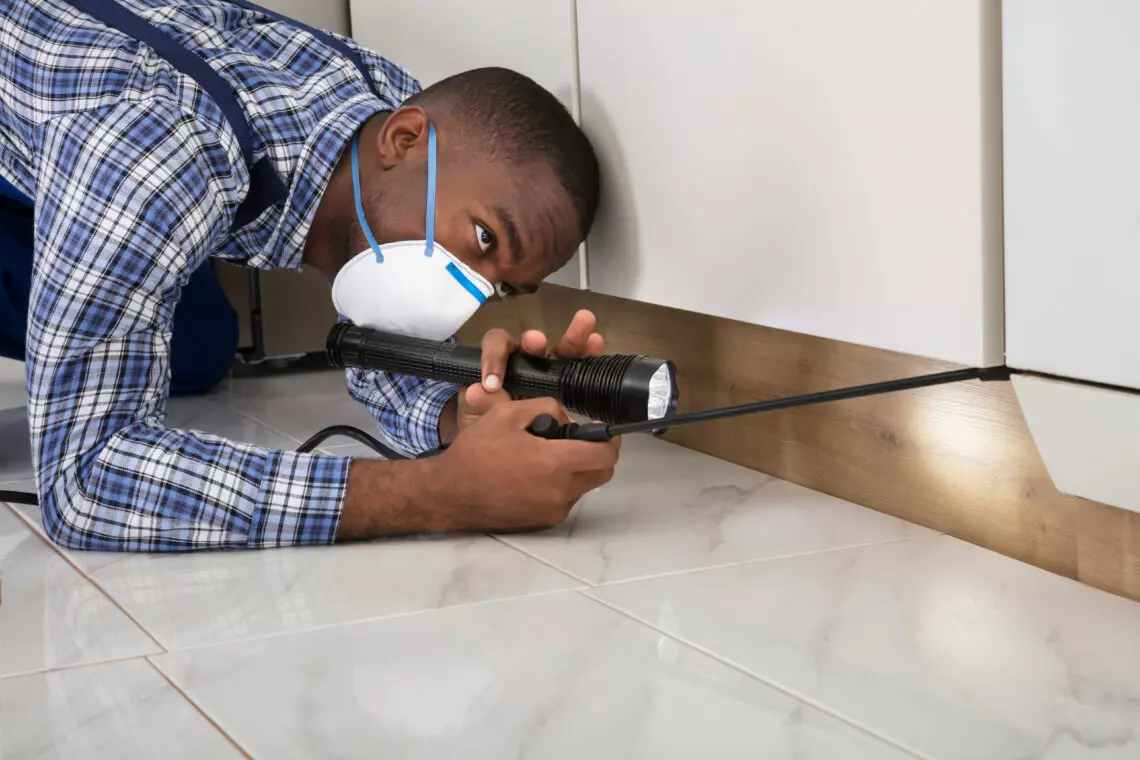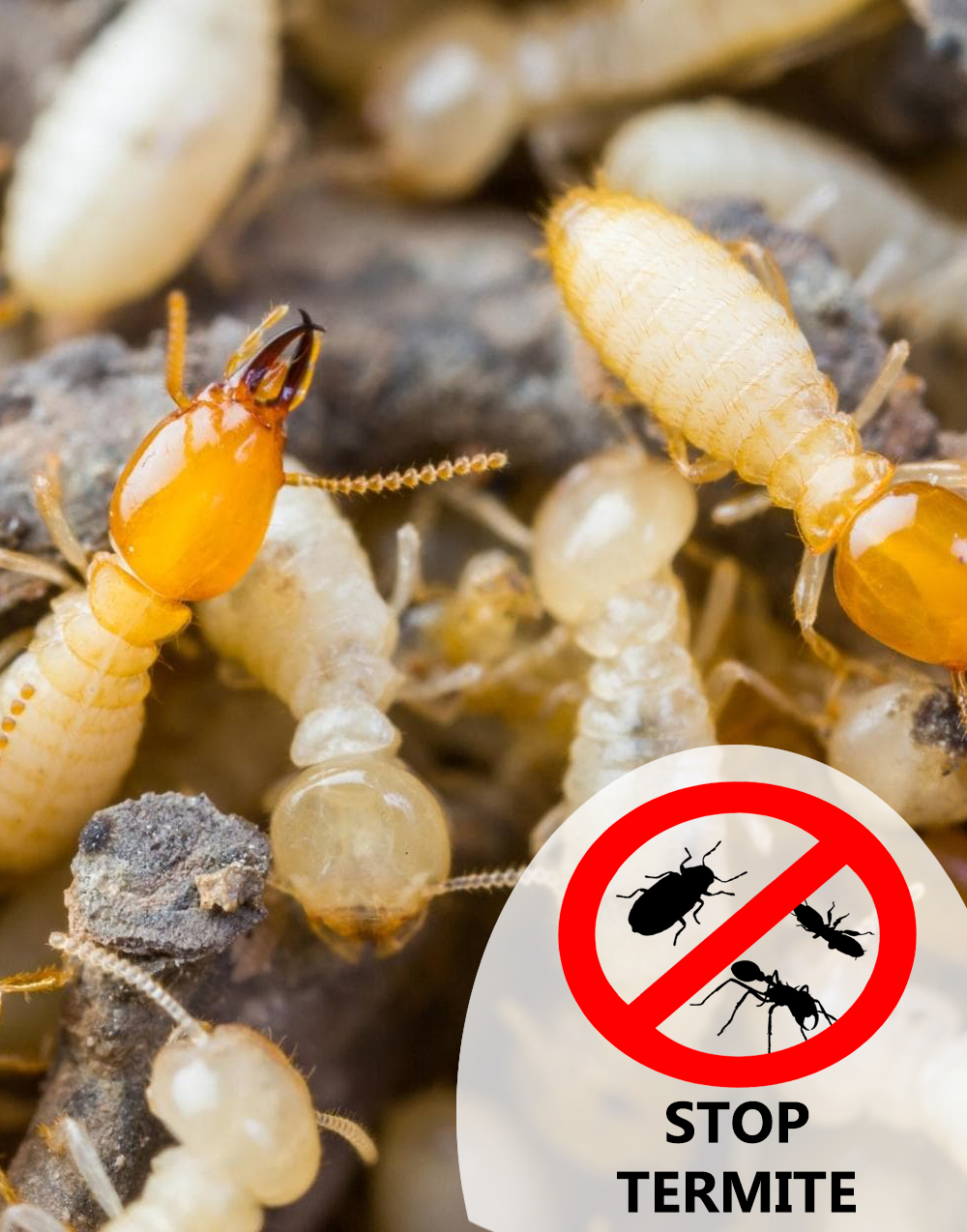Checking Out Different Methods and Techniques for Comprehensive Parasite Control in Residential Spaces
The landscape of insect control in household spaces has actually evolved considerably, requiring a comprehensive understanding of numerous methods that can be employed for efficient administration. Traditional chemical treatments, while efficient, are significantly being complemented by environmentally friendly options and Integrated Parasite Monitoring (IPM) strategies. Homeowners need to consider preventative actions, such as regular surveillance and exact insect recognition, to maintain a healthy and balanced setting. Nevertheless, the genuine challenge hinges on striking a balance in between efficacy and safety-- an expedition that discloses the nuances of each approach and its effects for lasting living.
Recognizing Pest Control Fundamentals
Reliable insect control is vital for maintaining a healthy and secure living setting. Comprehending the fundamentals of bug control involves acknowledging the kinds of bugs that commonly invade property areas, the prospective risks they posture, and the significance of safety nets. Common family insects include rodents, insects, and other unwanted creatures that can jeopardize health, damage home, and cause health and wellness issues.
A crucial very first step in parasite control is determining the specific insects existing. This can include evaluating locations such as attics, basements, and cooking areas, where pests are likely to flourish. As soon as identified, it is essential to recognize their behaviors, breeding cycles, and favored atmospheres, which can inform suitable control techniques.
Preventive procedures are essential to reliable bug administration. These consist of securing entry points, preserving cleanliness, and minimizing mess to eliminate hiding places. Furthermore, appropriate food storage space and waste monitoring can significantly reduce the attraction of a home for pests.

Typical Chemical Treatments
Among the different parasite control methods, conventional chemical therapies have long been used to address infestations in domestic areas. These treatments commonly entail the application of chemical pesticides created to get rid of pests such as insects, rodents, and other undesirable organisms. The efficiency of these chemicals can vary, relying on the kind of bug, the solution of the chemical, and the technique of application.
Typical classes of conventional chemical therapies consist of insecticides, rodenticides, fungicides, and herbicides, each tailored to battle certain parasites. Insecticides, for instance, may target termites, ants, or roaches, while rodenticides are specifically developed to manage rodent populations. These chemicals are usually readily available in various kinds, including granules, sprays, and lures, permitting homeowners flexibility in application.
In spite of their performance, typical chemical treatments increase worries pertaining to possible poisoning to humans, family pets, and advantageous organisms in the atmosphere. Therefore, it is vital for homeowners to meticulously comply with application standards and safety and security preventative measures to lessen dangers. Integrated Parasite Management (IPM) techniques can match these treatments, making certain a more holistic technique to pest control while taking full advantage of effectiveness and safety and security in residential settings.
Eco-Friendly Insect Control Options
Environment-friendly insect control choices are getting popularity as homeowners seek much safer and extra sustainable choices to standard chemical therapies. These techniques prioritize the health of both homeowners and the setting, reducing the effect of insect control practices.
One extensively taken on green strategy is making use of all-natural repellents stemmed from important oils, such as pepper mint and citronella. These oils not only hinder bugs yet also offer positive scents for interior areas. Diatomaceous earth, a powder made from fossilized algae, acts as a natural insecticide by harming the exoskeletons of insects upon get in touch with, leading to dehydration.
Another reliable technique involves advertising biodiversity in gardens and backyards. Introducing beneficial bugs, such as ladybugs and lacewings, can normally manage pest populaces (pest control chicago llc). In addition, utilizing catches made from eco-friendly products can help record and remove pests without triggering damage to the ecosystem
Regular maintenance, such as sealing entrance factors and correct hygiene, further boosts the efficiency of environmentally friendly insect control. Home owners can take positive steps to protect against problems, ensuring a more lasting living environment while successfully managing pest-related issues.
Integrated Parasite Management Methods
Executing integrated bug management (IPM) techniques offers a detailed technique to pest control that stresses prevention and long-term options. IPM integrates several techniques, focusing on understanding parasite actions, life process, and environmental dynamics to lessen bug populaces efficiently. This complex method focuses on non-chemical methods, such as organic control, habitat adjustment, and social methods, to lower dependence on chemicals.
A foundational element of IPM is checking and recognizing pests accurately. This involves normal evaluations and the establishment of activity limits to establish when intervention is necessary. By comprehending the details insects impacting domestic environments, targeted treatments can be utilized, reducing the possibility of unneeded chemical applications.
An additional Clicking Here vital element of IPM is enlightening property owners regarding the importance of cleanliness and maintenance techniques. By fostering an environment that inhibits pest infestations-- such as sealing entry points and handling moisture-- residents can substantially minimize the danger of bug troubles. Furthermore, when chemical controls are regarded essential, IPM supporters for using the least toxic alternatives to reduce environmental influence. Via these methods, IPM not only addresses current parasite problems however also cultivates lasting practices that advertise lasting insect management success.
Preventative Procedures for House
To repel potential parasite infestations, homeowners need to embrace a click here for info proactive technique that emphasizes preventative procedures. This starts with maintaining a tidy and orderly home, as mess and food debris bring in pests. pest control chicago llc. On a regular basis vacuuming, sweeping, and wiping down surface areas can considerably lower the risk of invasions
In addition, sealing entrance factors is crucial. Home owners ought to inspect home windows, doors, and structure cracks for spaces that can enable insects accessibility to the home. Using caulk and climate stripping can successfully obstruct these entranceways.
Proper food storage is another vital action. Saving food in impermeable containers and promptly cleaning up spills or crumbs assists prevent rodents and bugs.
Additionally, taking care of exterior settings can stop parasites from elbowing in on household rooms. Home owners need to make certain that water drainage systems are operating well, and landscape design is maintained neat. Trimming trees and shrubs away from your house and getting rid of standing water can better reduce bug habitats.

Conclusion
In conclusion, efficient parasite control in property rooms necessitates a diverse strategy that combines standard chemical therapies with environmentally friendly techniques and Integrated Pest Administration approaches. By prioritizing preventative steps, such as preserving sanitation and securing entry points, house owners can significantly decrease bug events.
Understanding the fundamentals of bug control entails recognizing the types of insects that frequently get into household rooms, the potential dangers they position, and the value of preventative actions.A vital first step in pest control is identifying the specific pests present. Integrated you could check here Pest Management (IPM) strategies can complement these treatments, ensuring a more all natural strategy to pest control while making the most of efficacy and safety in residential setups.
Carrying out incorporated insect management (IPM) strategies offers a thorough strategy to pest control that highlights prevention and long-term remedies.In verdict, efficient insect control in residential rooms demands a diverse approach that incorporates standard chemical treatments with eco-friendly techniques and Integrated Bug Management approaches.